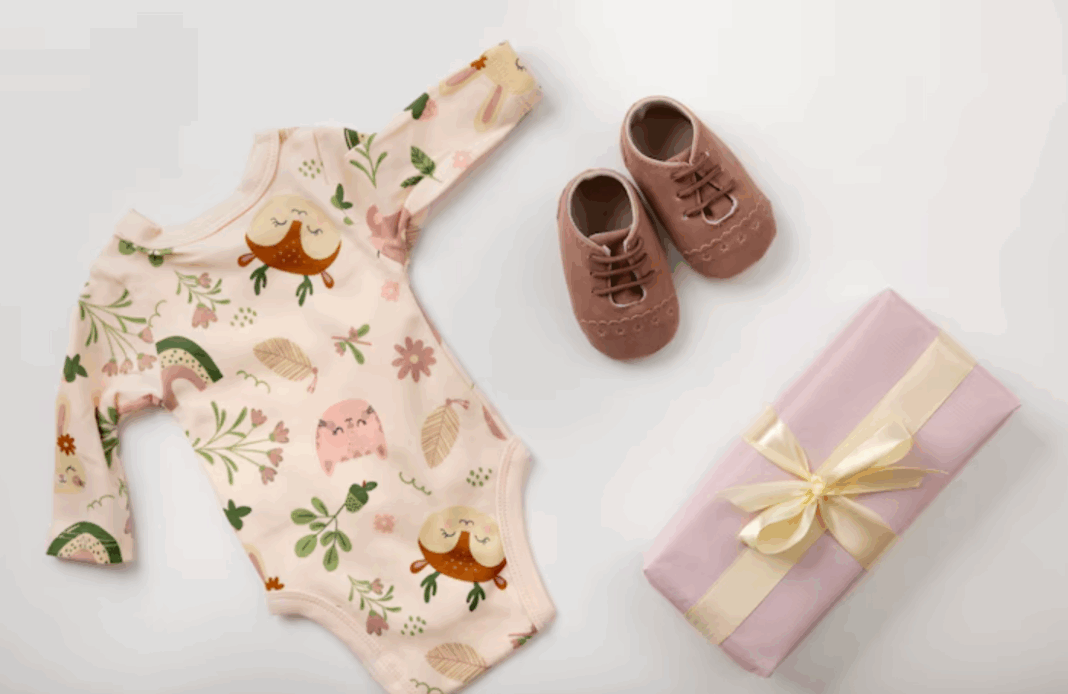Modern parents are getting more and more aware and educated, and they are unobtrusively changing their shopping habits, especially with regard to babies. One of the most notable decisions that parents are making more often is to shift their babies from traditional baby clothing to organic baby clothes.
This trend strays from the interest in trendy appearance; instead, it is based on an increased awareness around health, the influence of the environment, and ethical purchasing. In a country where the production of textiles tends to involve the use of serious chemicals, organic baby wear, after all, is ultimately a win-win situation for children and the environment as well. And there are seven main reasons why Indian parents are increasingly going for organic baby clothes.
Table of Contents
1. Safer for Delicate Baby Skin
Due to the sensitivity and the distinct potential for the skin to be more porous at a baby’s age, chemical residues and irritants can be easily absorbed. Because of the use of chemical dyes and pesticides in the production process, traditional baby clothing is likely to contain irritants such as bleach and synthetic dyes, causing rashes and allergies.
In contrast, organic baby clothes are made from fabrics with non-toxic chemicals. The result? A material that is smoother to the touch, more soothing, and much less likely to cause skin problems. Many parents claim that their babies have fewer skin problems and feel more comfortable when wearing organic baby clothes.
2. Chemical-Free and Non-Toxic
Conventional cotton farming uses approximately 16% of the world’s insecticides and 7% of pesticides, making it one of the most chemically-intensive crops. These chemicals often remain as residues in the final product, potentially coming into direct contact with a baby’s skin.
Organic baby clothes eliminate this concern. Organic cotton is grown using natural methods like compost and beneficial insects, and the fabric is processed without using toxic bleaches or dyes. This makes organic clothing not only safer for babies but also for the farmers who grow the cotton.
3. Eco-Friendly and Sustainable
The benefits of organic clothing go beyond personal health. It’s a choice that positively impacts the planet. Organic farming uses 91% less water than conventional cotton farming, reduces soil erosion, improves soil fertility, and eliminates the risk of water contamination through pesticide runoff.
Parents who care about leaving a healthier planet for their children often choose organic clothing as part of a sustainable lifestyle. Supporting eco-conscious brands helps reduce carbon footprints and ensures future generations inherit a cleaner Earth.
4. Durable and Long-Lasting
One of the common misconceptions about organic baby clothes is that they’re delicate or less durable. In fact, organic cotton fibers are stronger because they haven’t been damaged by harsh chemicals. As a result, organic baby clothes last longer, withstand more washes, and maintain their softness over time.
Given how frequently baby clothes need to be washed, this durability is a major plus. Many parents find that organic clothes not only last through their first child but can even be passed down to siblings or friends, reducing waste and saving money.
5. All-Season Comfort
Another underrated benefit of organic cotton is its natural breathability. It helps regulate your baby’s body temperature by allowing air circulation, absorbing excess moisture, and keeping the skin dry. This makes organic baby clothes ideal for India’s varied climate—from the humid monsoons to the dry summers and cooler winters.
Your baby remains comfortable, reducing the chances of overheating or catching a chill. That comfort translates to better naps, calmer moods, and a happier parenting experience overall.
6. Ethical Production and Fair Trade
Ethical concerns are also influencing the choices of modern Indian parents. Many organic clothing brands—like Cocoon Care—are committed to fair trade practices, ensuring safe working conditions and fair wages for farmers and garment workers.
By choosing organic, parents support a system that values human life and dignity over mass production and exploitation. It’s a small but powerful way to teach children, from the start, that compassion and ethics matter in everyday choices.
7. Cost-Effective in the Long Run
Though the initial price tag for organic baby clothes may seem higher, they are cost-effective in the long run. Their superior quality means they don’t wear out quickly, which translates into fewer replacements. Moreover, fewer skin issues mean fewer doctor visits and medications for rashes or allergic reactions.
Add to that the emotional peace of knowing you’re giving your baby the safest and healthiest clothing, and the value becomes priceless.
Why Cocoon Care is the Preferred Choice for Organic Baby Clothes?
If you’re considering making the switch, Cocoon Care is a brand that truly embodies the values of sustainability, safety, and style. Their range includes 100% organic baby clothing, from bodysuits and rompers to blankets and essentials. Each piece is thoughtfully designed, ensuring it is breathable, ultra-soft, and gentle on your baby’s skin.
Moreover, Cocoon Care’s mission is centered on holistic well-being, not just for babies, but for the planet and the community. They follow ethical production processes and promote conscious living through their sustainable packaging and zero-waste mindset.
With beautiful, practical designs and a commitment to quality, Cocoon Care has become a trusted name among Indian parents who refuse to compromise on what touches their baby’s skin.
Final Thoughts
The rise of organic baby clothes in India is more than just a lifestyle choice—it’s a movement toward mindful parenting. It reflects a generation of caregivers who understand that the right choices today can lead to a healthier tomorrow.
From protecting your baby’s delicate skin to supporting a sustainable future, the benefits of going organic are clear. With brands like Cocoon Care leading the way, it’s easier than ever to make the switch—one soft, safe, and sustainable outfit at a time.



